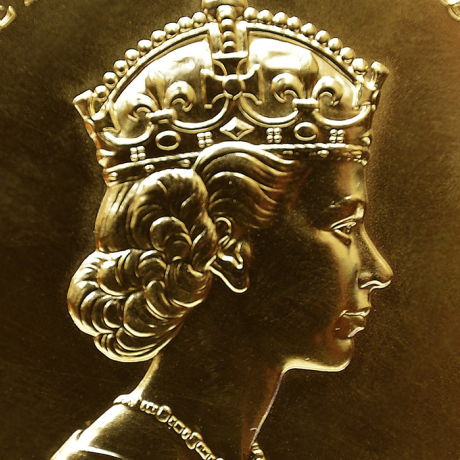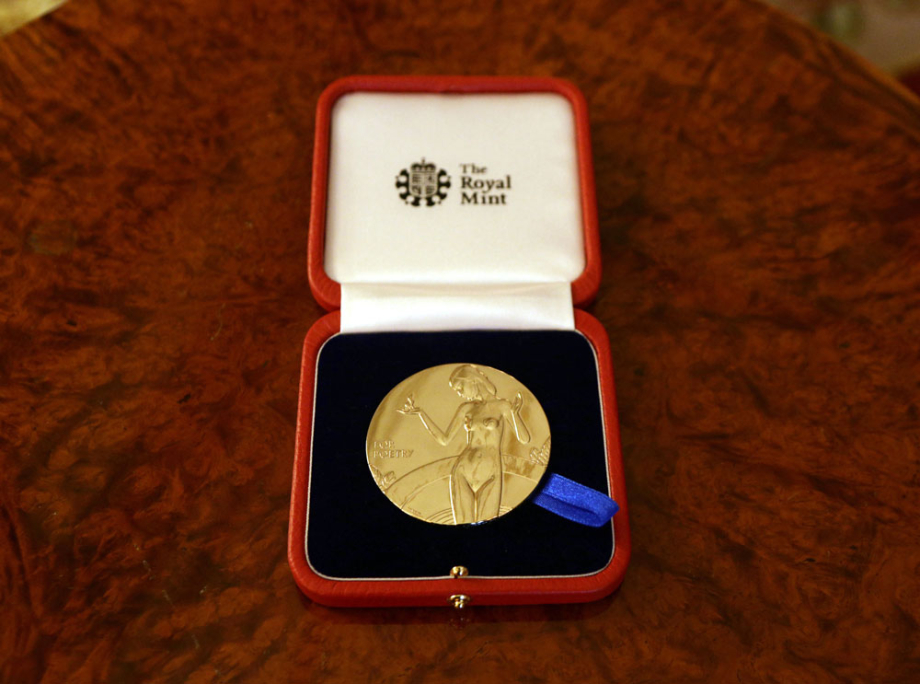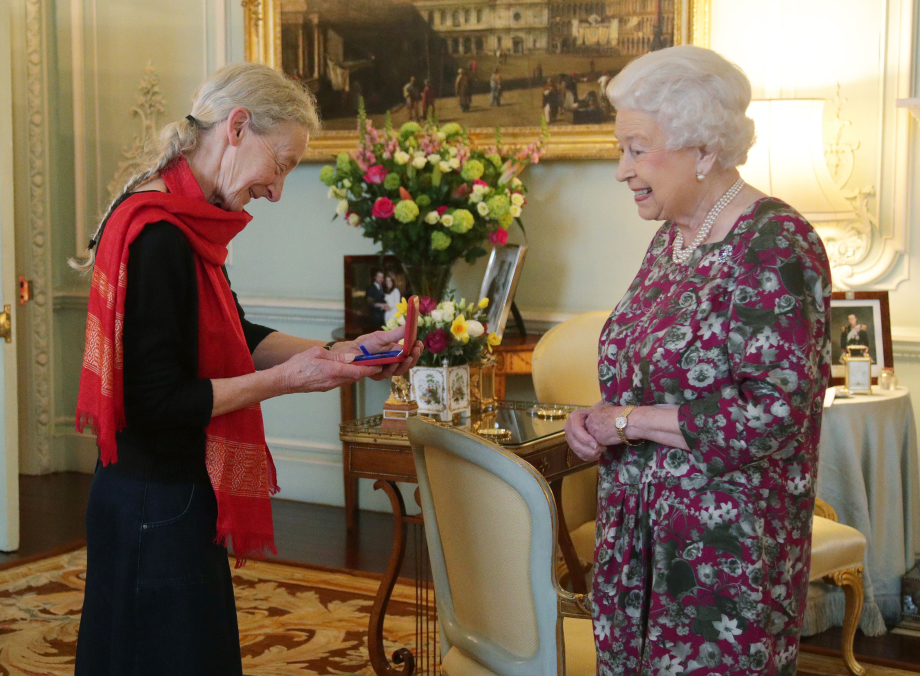The Queen’s Gold Medal for Poetry 2018 awarded to Simon Armitage
Published
Professor Armitage will be presented with the medal by The Queen in 2019.

The Poetry Medal Committee has recommended the poet Simon Armitage as this year's recipient of The Queen's Award for Poetry, on the basis of the body of his work.
Professor Simon Armitage, CBE, FRSL, was born in 1963 in the village of Marsden, West Yorkshire. He studied at the universities of Portsmouth and Manchester and until 1994 worked as a probation officer in Greater Manchester. He has written poetry throughout his life and has published many collections of his own verse, from Zoom! (1989) to his most recent work The Unaccompanied (2017). As well as new translations of early English verse, including Sir Gawain and the Green Knight (2009), Professor Armitage has also produced dramatisations and versions of Greek and Latin poems respectively.

He has been active as a teacher and mentor at universities internationally, and holds five Honorary Doctorates at UK universities. Professor Armitage has been Professor of Poetry at the universities of Sheffield (2011-2017), Oxford (since 2015) and Leeds (since 2017). He is also a Vice-President of the Poetry Society. In 2004 Professor Armitage was elected a Fellow of the Royal Society of Literature, and in 2010 he was awarded the CBE for services to poetry.
Summing up the Committee’s decision, the Poet Laureate writes:
“From the beginning Simon Armitage was an original writer and a boundary-breaking poet.
He spun poems of emotional weight and musical grace from the fabric of our everyday lives: the high street and suburbia, classrooms and tearooms, the pillion seat on a motorcycle. He touched the matter of our lives with characters and subject matter that lived among us: teachers and council tenants, chip shops and television shows, figures who drank in the local pub and shopped in the nearby supermarket.
“But the poems of Simon Armitage were always idealists too, equally at home in fictive, surrealist or utopic worlds as they were in his native Huddersfield town centre. With wit and charm, they would challenge hypocrisy wherever they encountered it, giving voice to those rarely admitted into poetry, and extending an arm around the unheard and the dispossessed. And for all the attention to the grain and trouble of daily lives, the poems never lost sight of wider horizons: our outer space full of possibilities, the dream space of our love.”
Professor Armitage will be presented with the medal by The Queen in 2019.

Gillian Allnutt is presented with The Queen's Gold Medal for Poetry by The Queen at Buckingham Palace, in 2017
History of The Gold Medal for Poetry
The Gold Medal for Poetry was instituted by King George V in 1933 at the suggestion of the then Poet Laureate, John Masefield. The Medal is awarded for excellence in poetry, on the basis either of a body of work over several years, or for an outstanding poetry collection issued during the year of the award. The poet will be from the United Kingdom or a Commonwealth realm, and the poems will have been published.
The front of the medal bears the crowned effigy of The Queen. The idea of the reverse, which was designed by the late Edmund Dulac, is ‘Truth is emerging from her well and holding in her right hand the divine flame of inspiration – Beauty is Truth and Truth Beauty’.
Previous recipients of The Gold Medal for Poetry
1934 Laurence Whistler
1936 W H Auden
1940 Michael Thwaites
1952 Andrew Young
1953 Arthur Waley
1954 Ralph Hodgson
1955 Ruth Pitter
1956 Edmund Blunden
1957 Siegfried Sassoon
1959 Frances Cornford
1960 John Betjeman
1962 Christopher Fry
1963 William Plomer
1964 R S Thomas
1965 Philip Larkin
1967 Charles Causley
1968 Robert Graves
1969 Stevie Smith
1970 Roy Fuller
1971 Sir Stephen Spender
1973 John Heath-Stubbs
1981 D J Enright
1986 Norman MacCaig
1988 Derek Walcott
1989 Allen Curnow
1990 Sorley Maclean
1991 Judith Wright
1992 Kathleen Raine
1996 Peter Redgrove
1998 Les Murray
2000 Edwin Morgan
2001 Michael Longley
2002 Peter Porter
2003 U A Fanthorpe
2004 Hugo Williams
2006 Fleur Adcock
2007 James Fenton
2009 Don Paterson
2010 Gillian Clarke
2011 Jo Shapcott
2012 John Agard
2013 Douglas Dunn
2014 Imtiaz Dharker
2015 Liz Lochhead
2016 Gillian Allnutt
2017 Paul Muldoon


